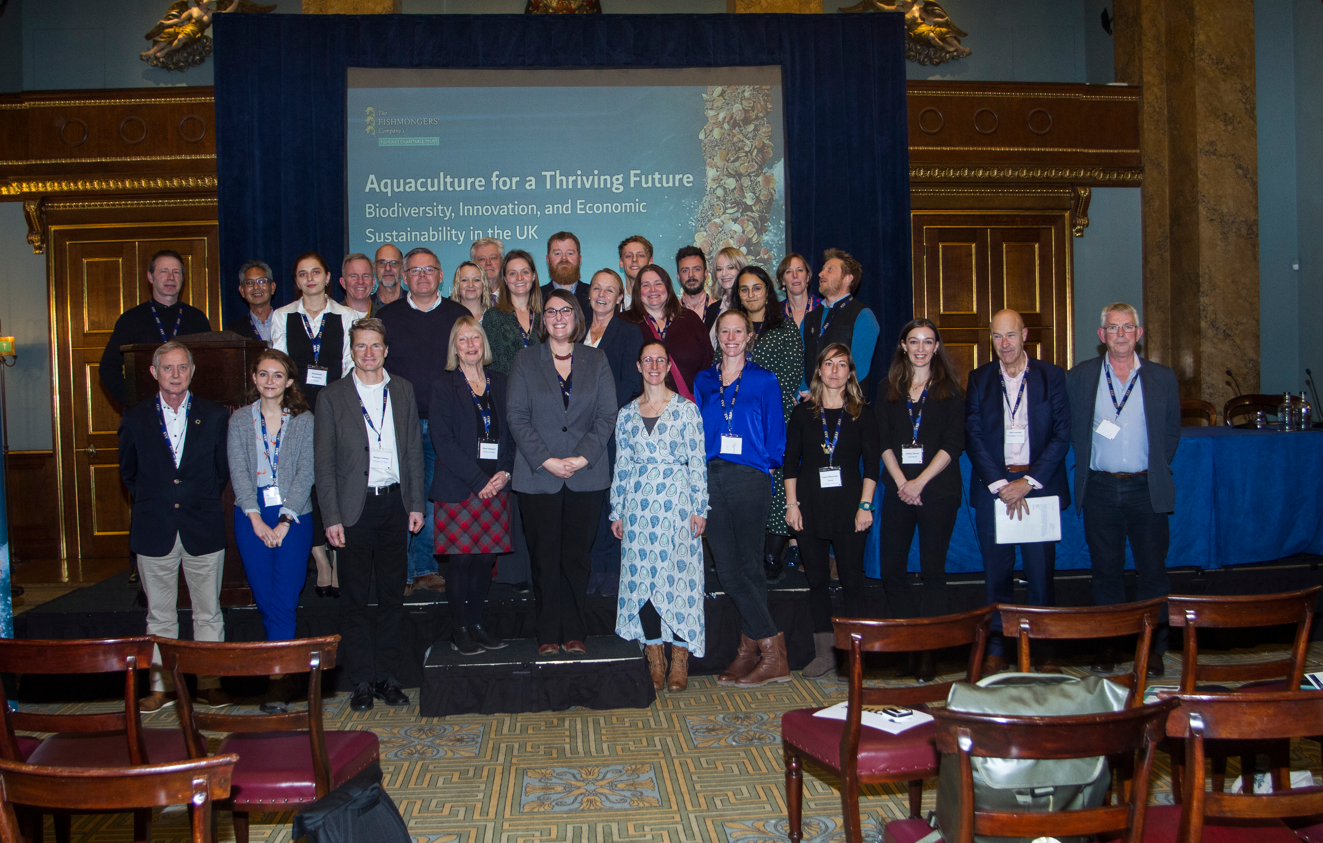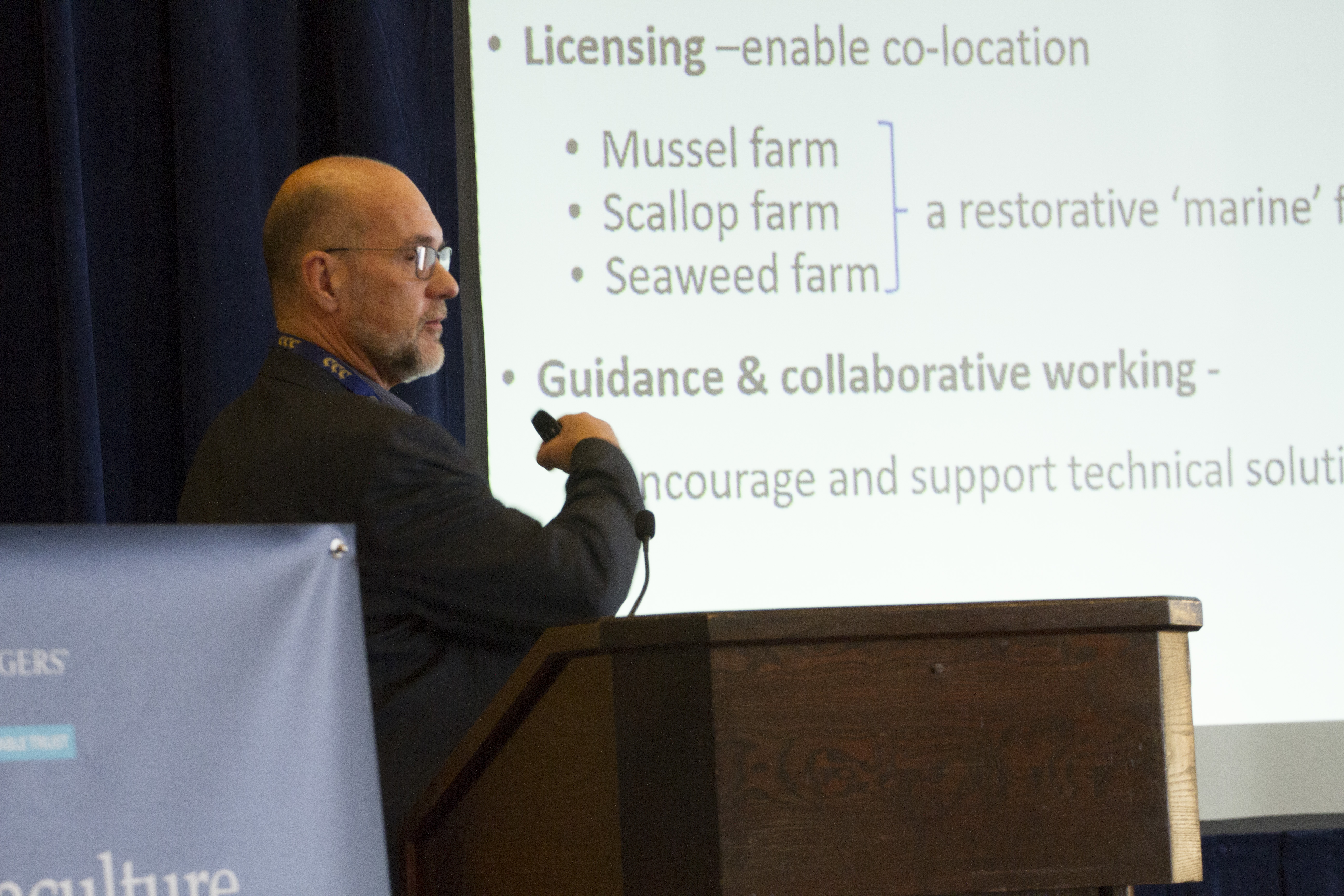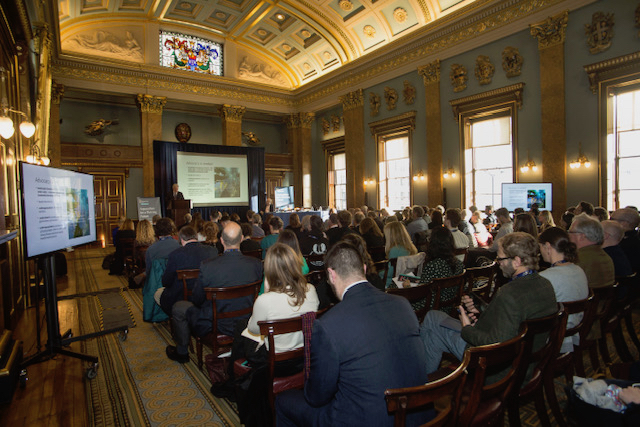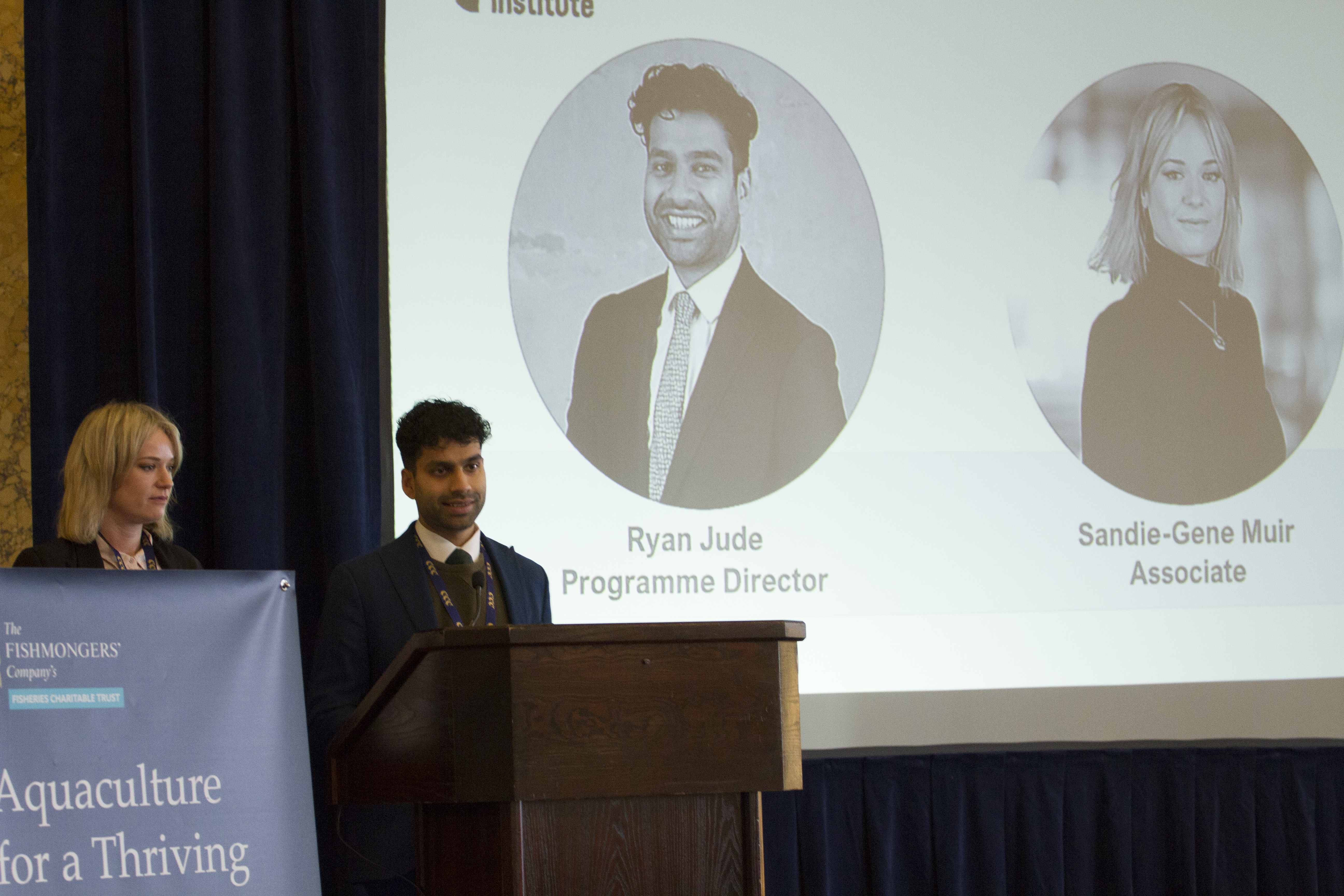Aquaculture for a thriving future

Fishmongers’ Hall in London was the venue for an event focused on low-trophic aquaculture, as Nicki Holmyard reports
The Fishmongers’ Company held a highly successful conference on 30 November, which looked at how the UK can grow nature positive and economically sustainable shellfish and seaweed. The event brought together policymakers, scientists, researchers, NGOs, farmers and industry experts, with the aim of understanding how to kickstart the acceleration of the low-trophic aquaculture (LTA) industry.
The event, opened by Eleanor Adamson from The Fishmongers’ Company, covered the UK’s vision for aquaculture, marine policy and blue investment, the prospects for ecological enhancement and environmental gain, market innovation and frontier thinking. It concluded with an expert panel discussion, which drew together the opportunities and challenges facing the UK’s LTA sector, and looked at how collaboration could deliver benefits for shellfish farmers, fishermen and the environment, as well as tackling some of the structural barriers currently restricting growth in the sector.
It is widely acknowledged that shellfish and seaweeds are nutritious food sources that support food security and combat malnutrition, as well as providing an impressive range of ecosystem benefits, such as nutrient uptake and carbon sequestration. However, funding is required to explore the potential for new products derived from the base materials, alongside financial incentives and technical aid to help increase production.

Stefán Jón Hafstein
An international perspective was provided by the keynote speaker Stefán Jón Hafstein, Chair of the Aquatic Blue Food Coalition and Special Envoy for Ocean Affairs, Iceland. He quoted the FAO’s Blue Transformation Strategy, which estimates that a 35% growth in aquaculture is possible until 2030. However, Sustainable Development Goal 14, “Life below water”, is the least funded of the Sustainable Development Goals. Globally, aquatic blue foods are underappreciated in dialogues on nutrition, undervalued by funding agencies, governments and investors, and underrepresented among decision takers and policymakers in relation to the climate-biodiversity-food systems transformation process.
He also emphasised that natural capital has become an essential part of any serious economic exercise, alongside produced capital and human capital.
Blue growth, green goals
Caroline Price, The Crown Estate (TCE) Interim Head of Nature & Environment (Marine), explained that her organisation is committed to helping unlock the potential for blue growth in the UK. In support of this goal, work is underway to map and assess the natural capital value of the different areas of TCE seabed and foreshore, and also to understand the whole-life carbon and other social and environmental impacts associated with marine sectors. This work will inform a roadmap to guide a whole-systems approach to sustainable marine management, including delivery of the UK’s net zero and nature recovery goals.
The need for a UK Green Taxonomy was explained by Ryan Jude of the Green Finance Institute. Currently, there is no official definition of which economic activities count as environmentally sustainable and there are significant data gaps related to the environmental impacts of economic activities.

Alex Adrian, Crown Estate Scotland
A Green Taxonomy would provide a dictionary of sustainable activities and support informed investment decisions, which in turn would help support the UK’s transition to a net zero and nature-positive economy. Work will start this year to develop criteria for regenerative aquaculture, with the final version submitted as advice to the Department for the Environment, Food and Rural Affairs (Defra) for the UK Government to consult on before bringing into legislation.
Five excellent presentations allowed delegates to understand the considerable potential of seaweed and shellfish to produce food, whilst enhancing the environment. These presentations covered regenerative ocean farming; ecological interactions of an offshore longline mussel farm and its conservation potential as a de facto marine protected area; biodiversity monitoring at seaweed farms; the role of oysters as ecosystem engineers; and how to optimise seaweed farming for climate change mitigation.
The prospect of using Pacific oyster (Magallana gigas) as a foundation species to create soft-engineered living reefs for the protection of eroding coastlines along the coast of East Anglia was covered by Dr Michael Steinke of Essex University. Similar successful initiatives in the USA have encouraged a group of oyster farmers to apply for field trials in the UK. However, Defra currently classes Pacific oysters as invasive and has declared that there should be no expansion of or new Pacific oyster aquaculture north of 52°, which is anywhere north of a line drawn between Fishguard in Wales and Felixstowe on the east coast. Instead, Defra says the focus should be on native oyster (Ostrea edulis) regeneration, despite the fact that this species takes far longer and is more difficult to grow.
Steinke argues that Magallana gigas has already naturalised in many places in the southern North Sea and beyond, and could provide a nature-based solution to protect the coastline from future erosion.

Audience at Fishmongers’ Hall
Paying the farmers to protect the seas
Payments for Ecosystem Services (PES) is understood in the world of agriculture but has yet to be initiated for the LTA sector. Anton Immink of ThinkAqua argued that payments for ecosystem services could attract new investors and producers into the sector and encourage shellfish industry growth. A higher per kilo value for bivalves could be obtained by combining PES and new markets for shell and bioproduction, alongside the basic raw product. A PES system would need to be data-driven and markets for the services identified to be successful.
Lewis Le Vay from Bangor University looked at the potential for innovating with low-carbon food ingredients. He explained that the greatest benefit of mussels is not in direct carbon sequestration but in replacement of higher impact foods. He is currently involved in a project to transform mussels into a food ingredient for inclusion in more widely accepted foods. This is part of a strategy to redirect consumers away from red meat toward aquatic foods with lower environmental impacts and better health profiles.
To overcome bottlenecks and reverse stagnation of the shellfish industry, as well as helping the fledgling seaweed sector to flourish, the conference called on government to confirm their commitment by creating a designated body to act as an official liaison with industry. In addition, the site/business application process should be streamlined and support provided for both new and expanding businesses.

Sandie-Gene Muir and Ryan Jude, Green Finance Institute
Development of ports and harbours to take aquaculture into account should also be supported, he said. The prioritisation of ecosystems and industry development rather than a focus on restoration of degraded environments would help to shift the focus to production.
A high-priority action is to de-risk the industry to attract new investors. This includes the need to find an urgent solution to overcome the ongoing issue of getting shellfish from class B waters into Europe.
Importantly, greater advocacy is needed to drive change in policy and regulation, which currently hinders rather than enables a flourishing aquaculture industry. In addition, low-trophic aquaculture foods need to be included in national food and drink strategies as a matter of urgency.
I have touched on just a few of the informative presentations here. They can all be found online at fishmongers.org.uk/fish-fisheries/aquaculture-for-a-thriving-future

